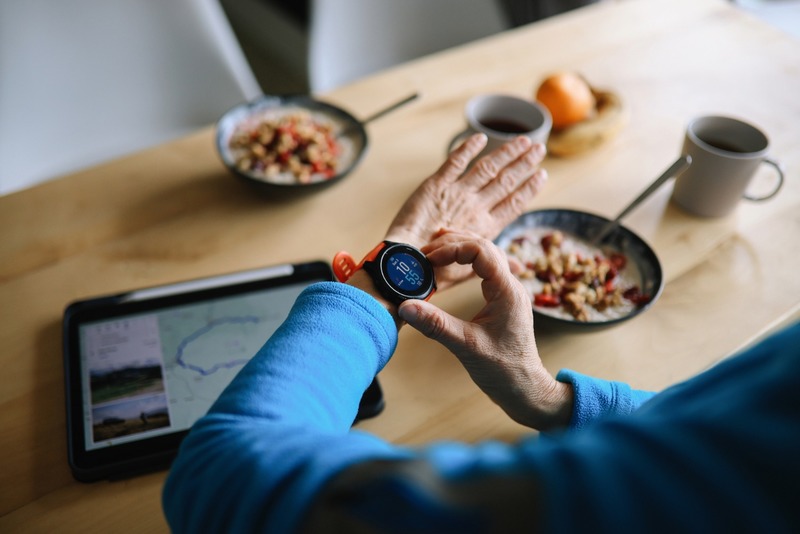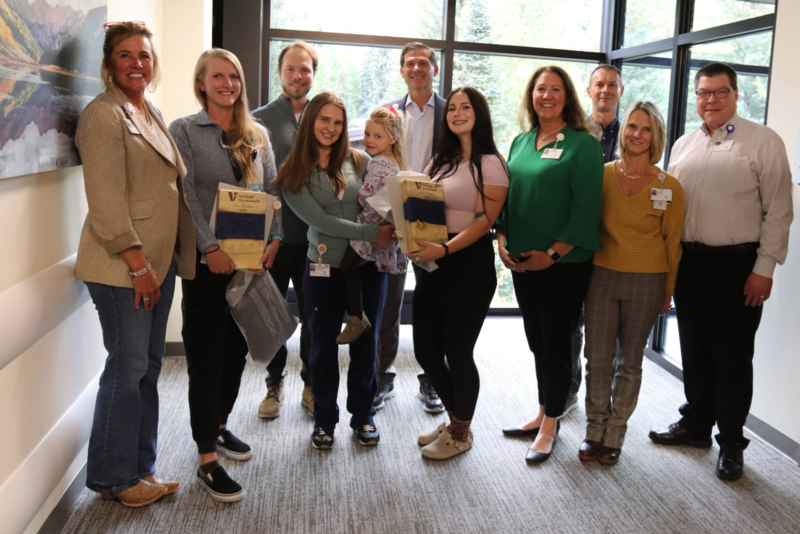News
Socializing: A Key to Longevity

The holidays provide various opportunities for socializing, and since studies show a correlation between social connection and longevity, there’s good reason to spend time with others this season and all year long.
Studies have shown that social connections have a positive impact on our mental and physical health, and can even help us live longer. Marta Zaraska, author of "Growing Young: How Friendship, Optimism, and Kindness Can Help You Live to 100," highlighted the importance of relationships in promoting longevity. She said that spending time with others can promote the release of oxytocin, a hormone that reduces pain, promotes positive feelings and helps us cope with stress. Even brief interactions with others can increase the release of oxytocin, as well as dopamine, serotonin and endorphins, all of which improve our emotional and physical well-being.
Research has shown that people with larger social networks are less likely to die than those who experience loneliness and isolation. One study published by the Journal of Epidemiology and Community Health found that people who socialized everyday lived longer than those who socialized weekly, and the same went for those who socialized weekly versus monthly.
Conversely, studies suggest that social isolation is among the major risk factors that increase the risk of death, including smoking. According to the Centers for Disease Control (CDC), loneliness has been linked to heart disease and stroke, type 2 diabetes, depression and anxiety, dementia and other risk factors. Loneliness is often referred to as an epidemic, and research suggests the most vulnerable groups that are impacted include low-income adults, immigrants, young adults, seniors, those living alone, people with chronic diseases and disabilities, and those who identify as LGBTQ+.
“These people are our neighbors, co-workers, classmates and friends,” said Chris Lindley, an epidemiologist and the Chief Population Health Officer at Vail Health. “Our health as individuals, and as a community, is dependent upon spending quality time with one another.”
Lindley offers the following 10 tips to improve social activity and enhance overall well-being:
- Schedule time every day to connect with family and friends. In-person get-togethers are best, but FaceTime, phone calls, texts and emails can also provide a sense of connection.
- If you typically work from home, consider going to the office or working from a coffee shop to reduce feelings of loneliness and isolation.
- Introduce yourself to people in your community, such as neighbors, co-workers and other parents at school.
- Volunteer and perform acts of kindness to help others and promote positive feelings. People who volunteer, especially in their older age, tend to live longer, happier lives.
- Find an activity you enjoy or take a class to learn something new. Chances are you’ll meet people with similar interests.
- Get physically active and meet others by joining a gym, fitness classes or a walking group.
- Consider joining a faith-based organization to engage with others in activities and events.
- Look for local events in your community to meet new people or run into people you know.
- Consider adopting a pet if you are able. Animals have been proven to increase oxytocin levels, lower stress and reduce blood pressure. Walking your pets outside offers great health benefits, and it’s an easy way to meet other pet owners.
- Talk to a mental health professional if you need support in dealing with feelings of loneliness and isolation.
More News
-
New!
More

First Chair to Last Call: What Does Alcohol Really Mean For Your Health?
In nearly every Colorado ski town, some iteration of the neon sign blares its play-hard-party-harder anthem. It’s a not-so-subtle nod to mountain party culture, a lifestyle that normalizes combining sports and outdoor adventures with heavy drinking and partying. In Eagle County, après culture, high-altitude living and outdoor performance have coexisted for as long as locals have been sliding on snow. But how much is too much at altitude? And what role do social support systems play in helping residents find balance?
-
New!
More

Counting More Than Steps: How Wearables Can Help (or Hinder) Your Health
From step counts to sleep stages, heart rate variability to blood sugar spikes, wearable devices are giving us a front-row seat to what’s happening inside our bodies. Strapped to wrists, slipped onto fingers or wrapped around our biceps, wearables like the Oura Ring or Whoop strap promise insight and advice in the quest for better health.
-
More

Cass Barham and Sarah Crabtree Honored As Recipients of Vail Health Elevate Award
Cass Barham and Sarah Crabtree, both lab techs at Vail Health Hospital, have been named recipients of the Vail Health Elevate Award. Vail Health created the Elevate Award in June 2022 to give patients and their families an opportunity to nominate and thank employees who have touched their lives in some way.
